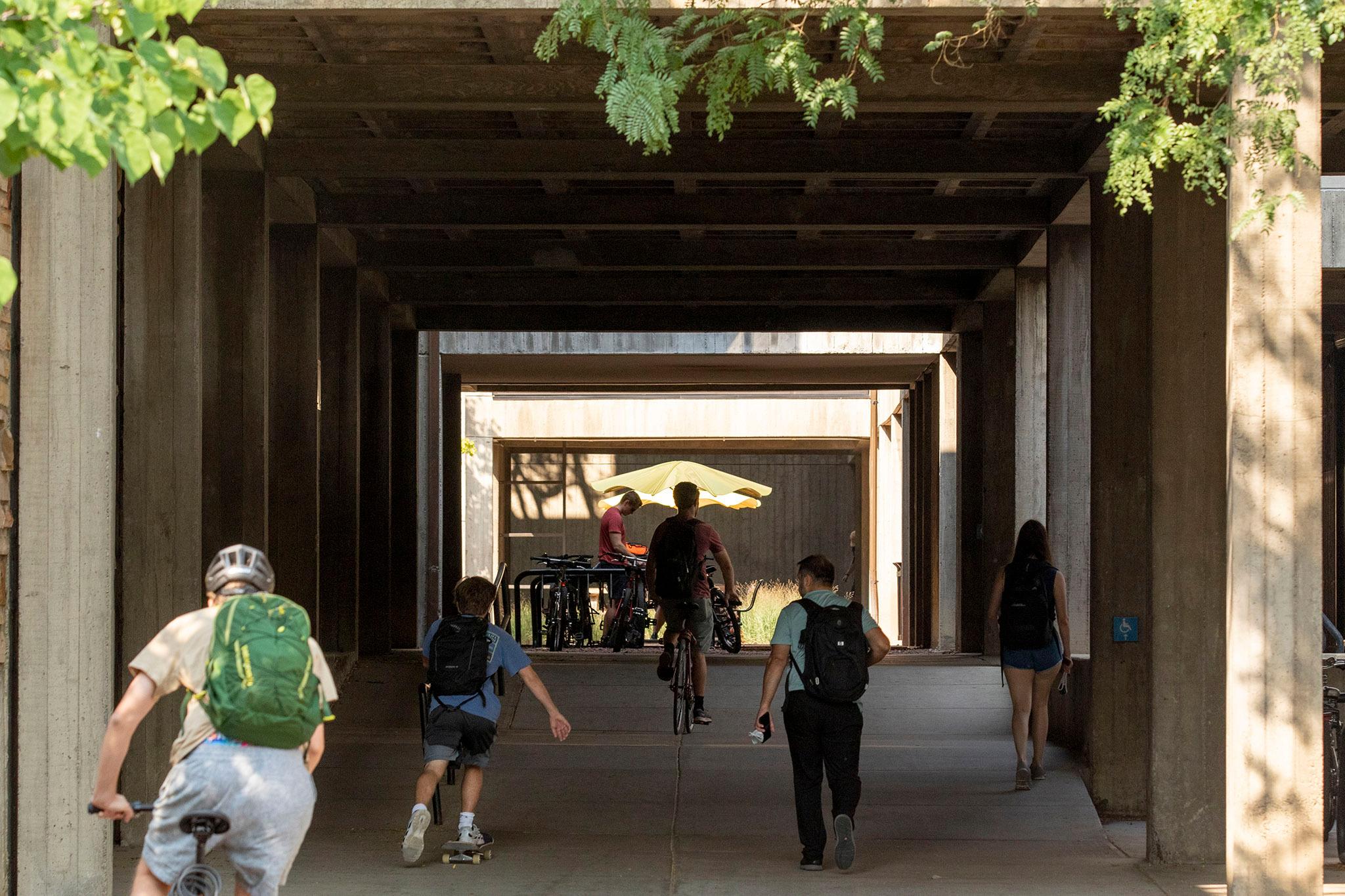
As the fall semester quickly approaches, Colorado’s higher education leaders have set ambitious goals for the coming year.
The state’s Department of Higher Education — a coordinating body for Colorado’s higher education institutions, not a governing one — released its annual report last month. It highlighted issues Colorado’s universities addressed, like food insecurity, loan forgiveness and non-traditional-student programs.
The report also identified several areas they hope to focus on in the next school year, as the department aims to make progress on these three issues: affordability, equity and workforce development this year.
Reducing the number of students with debt
Perhaps the most ambitious and noteworthy goal the department — as well as the Polis administration — has identified, is to reduce the amount of student debt and the number of students taking on debt.
About 50 percent of students who get bachelor’s degrees in Colorado leave with debt. That debt averages at about $26,000. Both figures are lower for students who get two-year associates degrees.
Angie Paccione, the executive director of the Colorado Department of Higher Education, said the data isn’t too bad, especially because the number of students graduating with debt has steadily declined since 2013.
“Some debt is good debt,” Paccione said. “And if you got a significant degree and you can turn that degree into a successful career, then $26,000 for only half of the students who are graduating is not bad debt.”
Still, she said there are ways to reduce the amount of debt each student takes on. The biggest initiative that will come into full effect this year is restructuring remedial courses — full-priced refresher classes or high-school-level lessons for students who aren’t up to speed that don’t count toward a degree. The department is required to make sure no more than 10 percent of students enrolled in Colorado’s public universities are taking remedial courses.
“There have been students who said they've had to take up to 15 to 18 [remedial] credits,'' Paccione said. “That's a lot of credits to pay. Think about CU Boulder, at $400 a credit and you have to take 18 credits. That's a lot of money that could have been going toward the completion of your degree.”
Schools are expected to reduce the remedial course rate by the end of this year. Instead of those classes, most students that are behind will be enrolled in entry-level courses with free, supplementary academic instruction outside normal class hours.
Increase student of color completion rate
Colorado’s equity gap in education isn’t a new thing.
Non-white enrollment rates at Colorado’s universities, especially at smaller, non-metro campuses, often don’t reflect the demographic makeup of local communities. On top of that, students of color who do enroll are far less likely to complete a four-year degree than their white peers.
Paccione said the department supported several pieces of legislation that passed in the last two years. These laws aim to improve retention rates among students of color and create more inclusive learning environments for all disadvantaged populations. Those include making tuition cheaper for students from Native American tribes with roots in Colorado and waiving all charges for foster children.
To assist with closing these gaps, Paccione hired Roberto Montoya earlier this year to be the department’s first ever chief education equity officer.
“His role is really to help facilitate these institutions with programs and strategies and policies that will help achieve this goal,” Paccione said. “The demographics show that the populations of color are increasing, if they're not also increasing their academic success, then what is our state gonna look like in 10, 15, 20 years?”
Getting job experience before graduating
Paccione and the department also want to prevent graduates from leaving universities and entering an industry that’s not a good fit.
So they’re asking universities to require every degree program they have to put work-based learning experiences in their curriculums. That means in order to graduate, students have to prove they worked in the industry their program is preparing them for. So finance majors can intern at a bank or history majors can work at local museums.
A majority of programs within the state already have a program the department is proposing. Paccione sees several benefits to expanding it.
“If people can get early experience and early exposure, number one, it helps to reinforce their choice. But number two, it gives them a quick path to a job,” Paccione said. “We need to make sure that students have that return on investment, so to speak and that they can get a job in their field of study.”
At colleges outside urban areas, like Adams State University in Alamosa or Western Colorado University in Gunnison, it may be harder for students — especially those studying in small, liberal arts programs — to find career opportunities in their preferred field. But Paccione said they’re encouraging universities to be open to various opportunities and not restrict students to traditional internship experiences.
“We've seen in the last two and a half years that online experiences are very valuable,” Paccione said. “Or maybe you do a six week internship with a local landscaper. And you say, how do you do your books?”
Paccione said an important part of making this requirement work is ensuring colleges engage and maintain a presence with their communities. Plus, they hope it helps keep Colorado graduates working in the state, instead of exporting their labor to another market.









